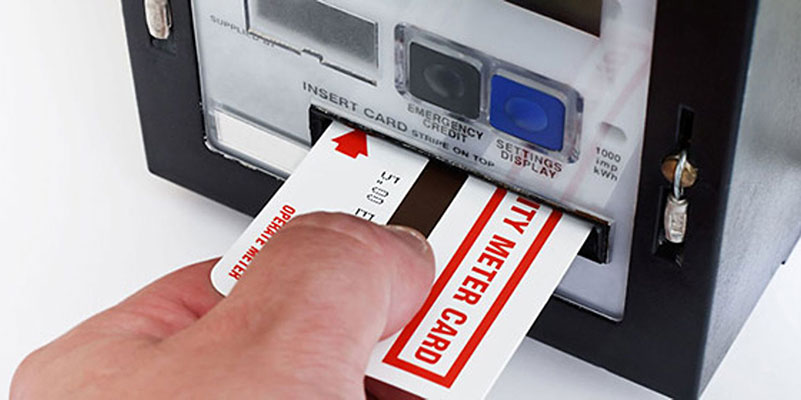
Divorce can be a difficult time, both emotionally and financially. In addition to navigating separations of assets, couples must consider how things such as pensions and Retirement Savings Plans will be managed in the division of their estate.
Pension benefits are an important aspect of financial planning for retirement. If you’re considering a divorce, you must understand your rights when negotiating your portion of them.
Pension in Divorce

Both parties' pension rights must be discussed and addressed when a couple of divorces. Pension in divorce, or “pension sharing,” is a process designed to divide up the benefits accrued by one or both persons during their marriage.
How these benefits are divided will vary depending on the type of pension plan in question and the jurisdiction's laws in which the divorce occurs. In some cases, pension rights can be shared between both parties, while in other cases, one party may be entitled to a certain percentage of the other’s pension benefits.
Financial Situation and Consider Consulting a Financial Planner

Before beginning the process of negotiating pension benefits in a divorce, it is important to get a thorough understanding of your financial situation. This may involve reviewing bank statements, investment accounts, and retirement plans to accurately determine what assets are available for the division. Consulting a financial planner can help you understand how to divide or share pension benefits.
Be prepared to negotiate with your ex-spouse
.Once you have a clear understanding of the financial situation, you and your ex-spouse must agree on how pensions should be divided. This may involve negotiating who gets what portion of the pension or agreeing to split up any benefits. If an agreement cannot be reached, the couple may need to seek a court order, which will typically result in both parties working with lawyers and a mediator to settle the issue of pension sharing.
Stay informed about Retirement Plan Rules.
To understand your financial situation and negotiate with your ex-spouse, you must stay informed about the rules and regulations surrounding retirement plans. This will help ensure that any agreement reached is legally binding and complies with applicable laws.
Knowing which pension benefits are eligible for division and the tax implications of dividing up assets will help ensure that you make the best decisions when protecting your pension in a divorce.
Divorce can be difficult, but understanding your rights and being prepared to negotiate can help protect your pension benefits. With the right knowledge and preparation, you can confidently navigate dividing up assets when facing a divorce.
different types of Pension Plans
Regarding pensions in divorce, it’s important to understand the different types of plans and how they may be divided. The four most common types of pension plans are defined benefit plans,
1. Defined Contribution Plans
2. 401(k) Plans
3. IRA accounts
4. Government Retirement Benefits
Each type of pension plan has its own rules and regulations, so it’s important to know the laws that apply to your particular situation. A financial planner or lawyer can help you better understand these rules and how they can affect the process of dividing up your pension benefits.
It is important to remember that when negotiating pensions in divorce, both parties must agree on how assets should be divided. It is also essential to stay informed about retirement plan rules and consult a financial planner for guidance. With the right knowledge and preparation, you can confidently protect your pension in a divorce.
Accurate Pension Valuation When Divorcing
When divorcing, it is important to accurately evaluate any pension benefits that are part of the division of assets. Pension valuations can be complicated and require the expertise of a financial professional such as an accountant or financial planner. A qualified expert will be able to provide an accurate assessment of your pension plan's worth, taking into account factors such as the type of plan, current market value, and tax implications.
It is also important to understand how different types of pension plans are taxed when dividing up assets. Your financial planner can help you understand what taxes may apply to different types of pensions and how they could affect your financial situation after a divorce.
To have a qualified professional assess your pension, there are steps you can take to help ensure that your pension valuation is accurate. For example, keep track of all the documents related to your pension plan and report any changes in employment or income to your financial planner. This will give them a better understanding of the current value of your pension plan and help them provide an accurate valuation.
Factors can affect my share of the Pension benefits
Regarding pensions in divorce, several factors can affect your share of the benefits. These include:
Children
In most cases, the spouse with primary custody of the children will receive a larger portion of pension benefits. This is because pensions are considered an asset that can be used to provide for the custodial parent's dependent children.
Financial means
The financial means of both spouses can also be a factor in determining who receives what percentage of the pension. If one spouse has more financial resources than the other, they may receive a larger portion of the pension benefits.
Health and age
The health and age of both spouses can also be a factor in determining the division of pension benefits. If one spouse is older or has poorer health, they may receive more pension benefits to offset potential medical costs.
Length of the marriage
The length of the marriage is also a factor in determining pension benefits. The longer the marriage, the more likely both spouses will receive equal pension benefits.
Contributions made to the marriage
Both spouses' contributions to the marriage can also be a factor in determining pension benefits. If one spouse has made more financial contributions to the marriage, they may receive a larger portion of the pension benefits as compensation for their efforts.
FAQS
How long after a divorce can I claim my spouse’s pension?
You can typically claim your share of the pension benefits immediately after a divorce. However, some states have laws that require you to wait until the retirement age listed in your divorce agreement before claiming any benefits. It is important to check with your local family court or lawyer to find out what rules apply in your situation.
Can My Spouse Take Half My Pension If We Divorce?
The division of pension benefits in a divorce will be determined by state law and your marital settlement agreement. Understanding how pensions are taxed and divided in your state is important before deciding how your pension will be split between you and your spouse.
Should I Cash Out My 401(k) Before My Divorce?
It is not typically advisable to cash out your 401(k) before your divorce. Depending on the laws in your state, this may cause you to owe taxes and penalties for early withdrawal. Speaking with a financial planner or attorney about handling your retirement accounts during the divorce process is important.
Conclusion
Protecting your pension should always be a priority when going through a divorce. Although the process can be complex and intimidating, understanding the legal process of dividing pensions, annuities, and other retirement accounts is crucial in divorce cases. Pension owners should always know their rights and consult an experienced family lawyer to ensure they receive a fair settlement.



